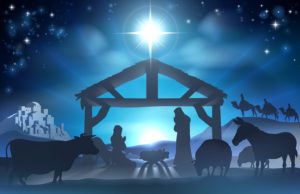
Today’s reading: 2 Samuel 5, Psalm 37
How good are you at waiting? Honestly, for me it depends on the situation. At 7:29 on Thursday morning last week I wasn’t very good at it. I was trying to drop my kids at school so I could get to an 8am meeting, thus I was only willing to wait about 10 seconds for the Jeep in front of me to pass the semi pulled over on the side of University Street. After a VERY LONG 10 seconds, I looked behind me, poked my nose around the Jeep to make sure no one was coming, then stepped on the gas. Ten seconds later, I had passed both the Jeep and the semi, and went on my way without incident. No harm, no foul, except perhaps that I called the Jeep driver a moron as I sped around her. Probably not a the best example of patience, safe driving, or using kind words for my 11 and 13 year old children that were sitting in the backseat.
Wait for the Lord and keep his way, and he will exalt you to inherit the land; you will look on when the wicked are cut off (Psalm 37:34).
David was not a “do as I say, not as I do” kind of guy. He was exceptionally good at waiting on God. Consider this – back in 1 Samuel 16:13, Samuel went to the house of Jesse to find David and anoint him King. From there, it was about fifteen years before David actually became King over Judah in 2 Samuel 2. It was then another seven years before David became King over the entire nation of Israel in 2 Samuel 5, our text for today. This is twenty-two years of waiting. Yikes, I couldn’t wait even ten seconds last week before I took matters into my own hands!
So all the elders of Israel came to the king at Hebron, and King David made a covenant with them at Hebron before the Lord, and they anointed David king over Israel. David was thirty years old when he began to reign, and he reigned forty years. At Hebron he reigned over Judah seven years and six months, and at Jerusalem he reigned over all Israel and Judah thirty-three years (2 Samuel 5:3-5).
If you had to wait more than 20 years for something that was promised to you, what would you do? I think we can learn a lot from what David did and didn’t do during his time of waiting.
David’s increased his reliance on, and intimacy with, God – David was the author of approximately half of the Psalms (76 of 150). As we’ve been reading through these, have you noticed how many of them are about David waiting and relying God for deliverance? His words are incredibly personal. They show us that waiting helps develop our patience. It helps us put our faith in the word of God, rather than what we see or experience.
- But you, O Lord, are a shield about me, my glory, and the lifter of my head (Psalm 3:3).
- In peace I will both lie down and sleep; for you alone, O Lord, make me dwell in safety (Psalm 4:8).
- O Lord my God, in you do I take refuge; save me from all my pursuers and deliver me (Psalm 7:1).
- I say to the Lord, “You are my Lord; I have no good apart from you” (Psalm16:2).
- I love you, O Lord, my strength (Psalm18:1).
- The Lord is my shepherd; I shall not want (Psalm 23:1).
- Lead me in your truth and teach me, for you are the God of my salvation; for you I wait all the day long (Psalm 25:5).
David did not check out and passively wait for God – David defeated Goliath in 1 Samuel 17, he fled from Saul who was trying to kill him in 1 Samuel 19-22, delivered the people of Keilah in 1 Samuel 23, and destroyed the Amalekites in 1 Samuel 30:26-31. In these stories, we see a consistent pattern. When presented with a situation, David inquired of the Lord before he acted, he obeyed the Lord’s direction, and he gave Glory to God for the victory. After becoming King, David followed this same pattern. (See the story of David defeating the Philistines in today’s reading – 2 Samuel 5:19).
What are you waiting for today? Will you follow David’s example and use this time to draw near to God? Do not be discouraged. God makes all things beautiful in his time (Ecclesiastes 3:11). His promises are always worth waiting for!
Wait for the Lord and keep his way, and he will exalt you to inherit the land; you will look on when the wicked are cut off (Psalm 37:34).








